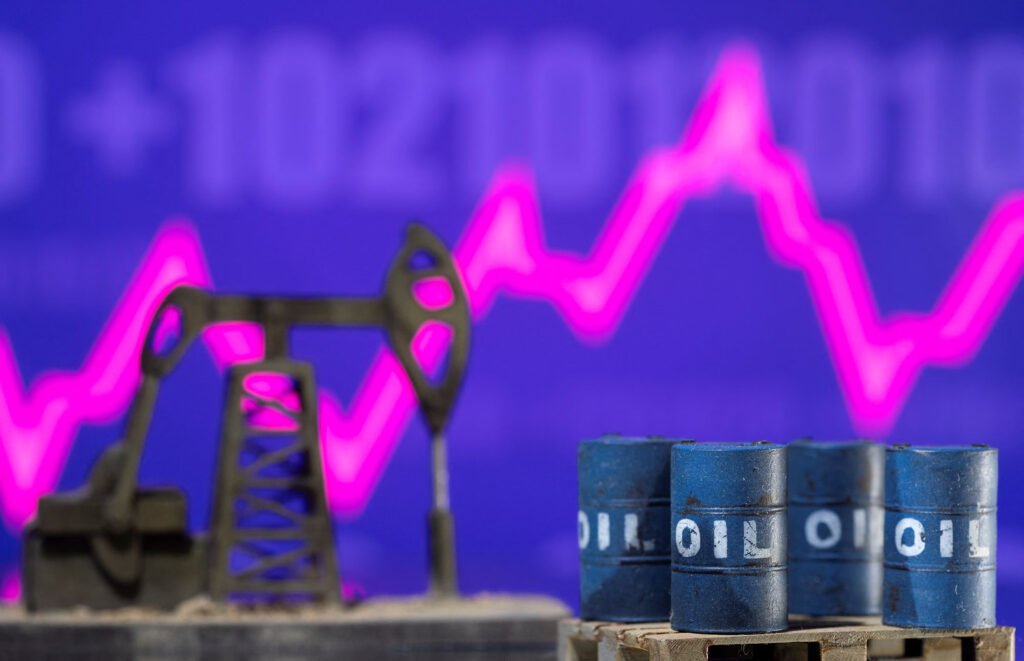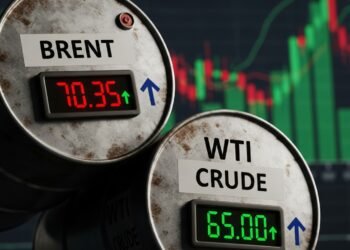Oil Marketing Companies (OMCs) have warned consumers to brace for another round of fuel price increases at the pumps in the coming weeks, with international oil market dynamics and exchange rate pressures combining to push costs higher.
The caution was issued by the Chief Executive of the Chamber of Oil Marketing Companies (COMAC), Dr. Riverson Oppong. He highlighted two critical factors driving the looming price adjustments: the rebound in crude oil prices on the international market and the depreciation of the Ghana cedi against the U.S. dollar.
Dr. Oppong explained that global oil prices are already showing signs of recovery, with forecasts pointing to further gains in the weeks ahead.
“Brent crude is forecast to rebound to 70 dollars per barrel due to the winter set up coming on board,” he said.
Dr. Riverson Oppong, Chief Executive of the Chamber of Oil Marketing Companies (COMAC)

He noted that demand for heating fuel typically rises during the winter months, tightening supply and driving up prices.
“We all know that from October to November we are not going to enjoy the same prices of crude oil products we do for summer days.”
Dr. Riverson Oppong, Chief Executive of the Chamber of Oil Marketing Companies (COMAC)
The expected rise in crude oil prices comes at a time when Ghana is grappling with exchange rate volatility, a double blow that threatens to keep fuel prices elevated through the end of the year.
Exchange Rate Pressures

According to Dr. Oppong, the weakness of the Ghana cedi has become one of the most significant contributors to domestic fuel price instability.
“We foresaw any effect on the pumps on Ghana will be an impact from forex and that has been the case.
“These two factors combined will certainly have implications for prices at the pumps.”
Dr. Riverson Oppong, Chief Executive of the Chamber of Oil Marketing Companies (COMAC)
The cedi’s persistent depreciation has made dollar-denominated fuel imports increasingly expensive for OMCs, costs which are ultimately passed on to consumers.
Dr. Oppong warned that the anticipated increases in pump prices would have ripple effects across the economy, raising the cost of transportation, logistics, and goods and services. He stressed that households and businesses alike will bear the brunt of these cost pressures.
While acknowledging that OMCs continue to work towards efficiency and competitiveness, Dr. Oppong insisted that external factors beyond the control of local industry players are shaping price movements.
“There is a need for deliberate policy interventions to cushion consumers from the frequent shocks associated with global oil price volatility.”
Dr. Riverson Oppong, Chief Executive of the Chamber of Oil Marketing Companies (COMAC)
Measures such as strengthening the Energy Sector Recovery Programme, diversifying energy sources, and exploring more robust forex stabilization mechanisms could help ease pressure on domestic pump prices.
Global Volatility and Local Realities

The warning from COMAC comes at a time when global oil markets remain highly volatile. Despite subdued demand growth forecasts earlier in the year, OPEC+ production adjustments and seasonal consumption patterns are reshaping supply dynamics.
For Ghana, which imports the majority of its petroleum products, the consequences of global trends are immediate and unavoidable.
As Dr. Oppong noted, the ability of local players to shield consumers is limited when external forces exert such strong influence over pricing.
The Chamber of Oil Marketing Companies is expected to continue its engagement with policymakers on ways to balance consumer protection with the financial sustainability of fuel suppliers.
As Ghana heads into the final quarter of the year, consumers may have little reprieve at the pumps. With Brent crude tipped to rise and the cedi struggling to hold ground, the prospect of stable or reduced prices appears slim.
For many households, the looming hikes raise fresh concerns about living costs, while businesses brace for another squeeze on margins. Whether government steps in with intervention measures could prove decisive in easing the burden on Ghanaians.
READ ALSO: Market Cheers as Ghana’s Treasury Auction Breaks Four-Week Drought with 15.8% Oversubscription






















